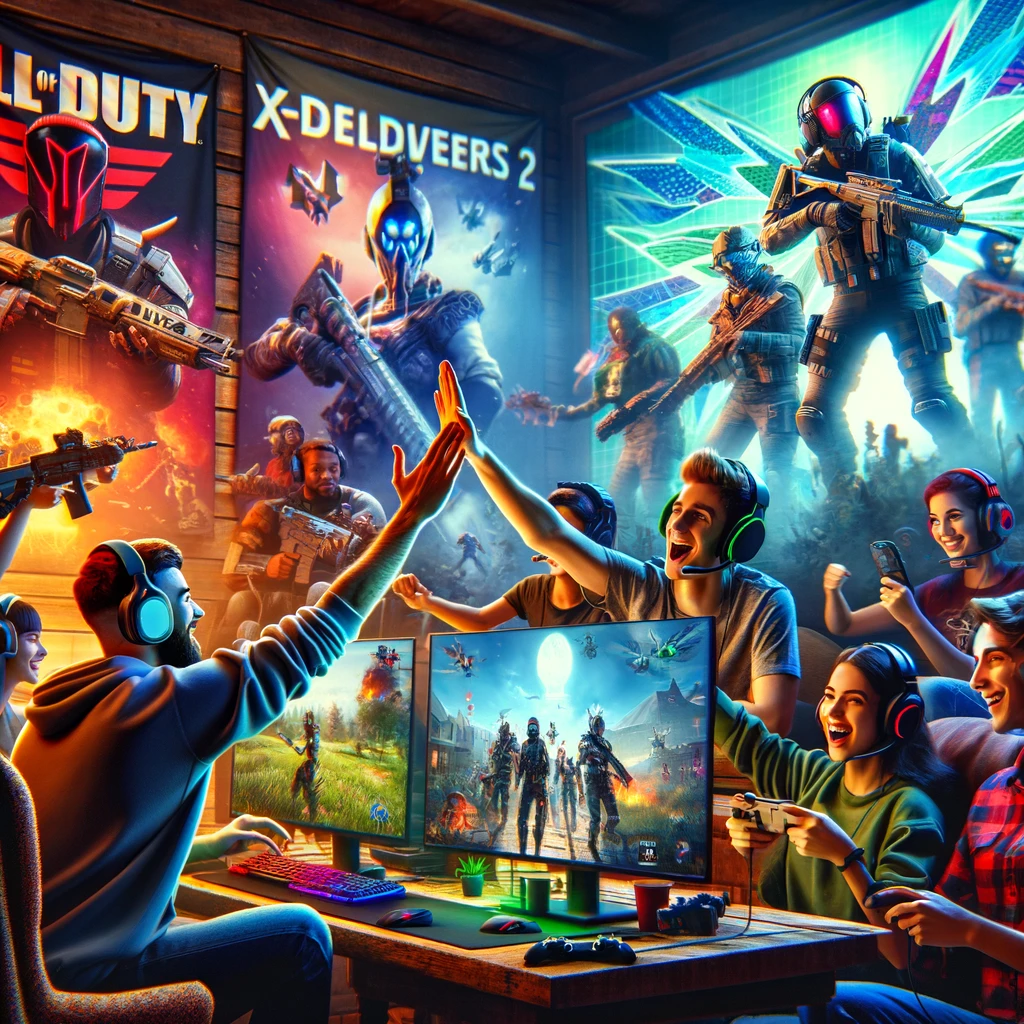Multiplayer gaming culture has undergone a significant transformation over the past few decades. Reflecting on the early days of online gaming, it’s evident that the culture surrounding these games has shifted dramatically. Back then, games like the early iterations of Call of Duty provided a platform where players could meet strangers, form genuine bonds, and engage in thrilling matches all in the name of fun. While toxic game chat lobbies certainly existed, there was a palpable sense of community that seemed to transcend the occasional vitriol.
In the nascent days of online multiplayer, the shared interest in a particular game was often enough to forge strong connections. Gamers would join lobbies or find each other on early social media platforms with a common goal: to play together and enjoy the experience. The excitement of finding someone who shared your passion for a game often led to spontaneous team-ups and long-lasting friendships. There was a camaraderie that arose from shared interests and mutual enjoyment of the game, fostering a sense of unity and collaboration.
Fast forward to today, and the landscape of multiplayer gaming culture appears to have shifted. While the technological advancements have undoubtedly enhanced the gaming experience, the social aspect seems to have fractured. Modern multiplayer games like Call of Duty and Ubisoft’s new shooter XDefiant are replete with players who seem more inclined to criticize each other than to collaborate. The atmosphere in many gaming communities has become increasingly hostile, with players often lurking on gaming social media platforms not to connect, but to disagree and argue.
One striking example of this cultural shift is the way players now interact with each other in-game and on social media. Instead of celebrating the shared enjoyment of a game, many gamers seem to focus on nitpicking and criticizing. Whether it’s arguing over the effectiveness of certain weapons or debating the merits of different movement strategies, the conversation often turns negative. The sense of “we’re in this together” has been overshadowed by a more divisive attitude, where players are quick to point out flaws and slow to recognize common ground.
Despite this trend, there are still pockets of positivity and community within the gaming world. Helldivers 2, for instance, boasts a fantastic community where players genuinely support and encourage each other. This game serves as a reminder that the spirit of camaraderie and mutual enjoyment can still thrive in the right environment. The cooperative nature of Helldivers 2 fosters a sense of teamwork and shared goals, which in turn cultivates a positive and inclusive community.
So what has contributed to this cultural shift in multiplayer gaming? Several factors come into play. The rise of competitive gaming and esports has undoubtedly raised the stakes, leading to a more cutthroat mentality among players. Additionally, the anonymity provided by the internet can embolden individuals to behave in ways they might not in face-to-face interactions. Social media platforms, while great for connecting players, can also amplify negative behavior and create echo chambers of toxicity.
Moreover, the sheer scale and diversity of the gaming community today means that players come from a wide range of backgrounds and experiences. While this diversity can enrich the gaming experience, it can also lead to clashes and misunderstandings. The inclusive nature of early online gaming communities, where everyone was united by their love for the game, has been diluted by the influx of players with different motivations and attitudes.
To recapture the sense of community that once defined multiplayer gaming, it’s essential for players to shift their mindset. Emphasizing collaboration over competition, seeking out like-minded individuals, and fostering a positive environment can help restore the camaraderie that made online gaming so special. Game developers also have a role to play in designing games and platforms that encourage positive interactions and discourage toxic behavior.
While multiplayer gaming culture has undeniably changed over the years, it’s not beyond repair. By focusing on the shared love of gaming and striving to build inclusive and supportive communities, players can revive the spirit of camaraderie that once made online gaming so enjoyable. The gaming world is vast and diverse, and within it lies the potential for new friendships and unforgettable experiences, as long as we remember to prioritize fun and connection over conflict and criticism.

